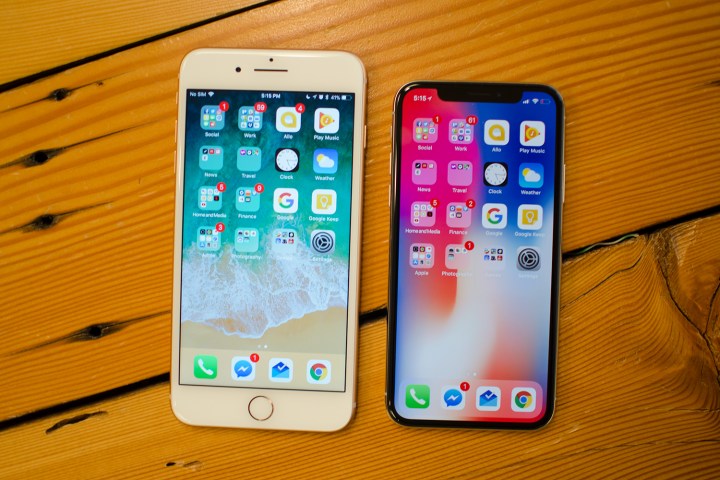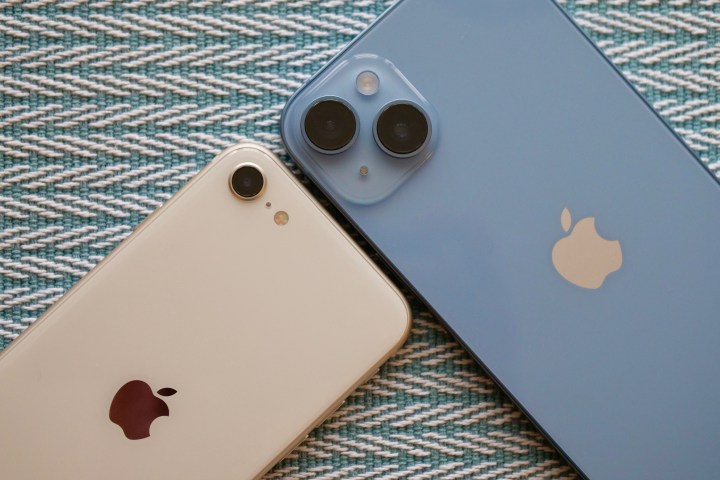With Apple’s Worldwide Developer Conference coming on June 5, we’re expecting a lot of cool things to be announced during the keynote. This could finally be the time that Apple unveils its mixed reality headset, and — of course — we’ll be getting our usual slate of software updates for existing products. That includes iOS 17, which will no doubt ship with the iPhone 15 later this year.
But one rumor going around recently is that iOS 17 could be dropping support for the iPhone 8, iPhone 8 Plus, and iPhone X. iPadOS 17 may also be leaving the first generation 9.7-inch and 12.9-inch iPad Pros, as well as the fifth-generation iPad, in the dust. Though many people who are using these devices seem to be outraged at the possibility of not getting iOS 17 on their older iPhones, I think it’s the right decision. Here’s why.
You already got over 5 years of software upgrades

One of Apple’s greatest strengths is how long the company continues to support its older devices — especially compared to the competition. Some devices, like the original iPhone SE and iPhone 6s, were able to survive seven years(!) of software upgrades. More recent devices, however, seem to be capping out somewhere between five to six years of upgrades. Apple also continues to push out security updates for older devices much longer than that too. In January 2023, Apple pushed out a security update for devices still on iOS 12.
While competing flagships from Samsung and Google, such as the Galaxy S23 and Pixel 7, are getting better with long-term support, it’s still not as good as Apple. Samsung is promising S23 users four years of software upgrades and five years of security updates. Google offers three years of Android upgrades for Pixel 7 devices while providing security updates for four years.
Keep in mind that Samsung hasn’t always provided support for its flagships for this long. Samsung only started doing this in early 2022. Better late than never, I suppose, and honestly, it’s a good start.
The iPhone 8, iPhone 8 Plus, and iPhone X were all originally launched in the fall of 2017 with iOS 11. With this in mind, that means these devices have been out for at least five years and have thus far received five software updates to iOS 16. That’s already more than what Samsung and Google offer with their own flagships, and I think it’s been a really good run.
The iOS experience isn’t the best on older phones

While Apple does support older devices longer than the competition, you still aren’t getting the most optimal user experience on said devices. Due to older processors and hardware, some of the newer features that Apple shows off during the keynotes aren’t available for the oldest models that it can be installed on.
For example, one of the big features that Apple showed off for iOS 16 was the ability to lift objects and people from an image and paste them elsewhere, essentially turning them into stickers. But for this feature to work, the iPhone needs to have an A12 Bionic chip or later, which is the iPhone XS and up. Even some Accessibility features, like the new dictation feature that punctuates as you speak — or Live Captions, which adds captions to live content like video calls — require the A12 or later.
Even if Apple weren’t going to cut off the iPhone 8/8 Plus and iPhone X, you’d likely be missing out on even more features, which just leads to an overall poor experience.
Of course, if you’re still using an older device and it’s been working out fine for you, then that’s great. You probably don’t care about the new features, or they’re just trivial to you and don’t affect how you use your device. We did put iOS 16 on an iPhone 8, and it wasn’t as bad as we were expecting — it didn’t run slower than iOS 15, and battery life didn’t feel like it took a hit.
But if you like to have newer features and functionality to play with, then that will certainly be hampered by having an older device that would be six years old by then. And sometimes, those new features are actually very useful for accessibility for people who need them, such as the Live Caption feature.
It’s been a good run, but it’s time to move on

In the end, Apple continues to have the longest support for older devices compared to its competition, and that’s great. It lets people get more use out of their devices, which are quite expensive. But at some point, those devices just won’t get the major iOS upgrades anymore, and that’s fine. Apple still will put out security updates and patches when needed, and they’ll continue to work — you just won’t have the new software versions.
With that context, it’s a bit silly why people are raging that iOS 17 could drop support for the iPhone 8/8 Plus and iPhone X. After all, five to six years of supported upgrades is still way better than what you’d get on the Android side of things.
All good things must come to an end at some point, whether you like it or not.



